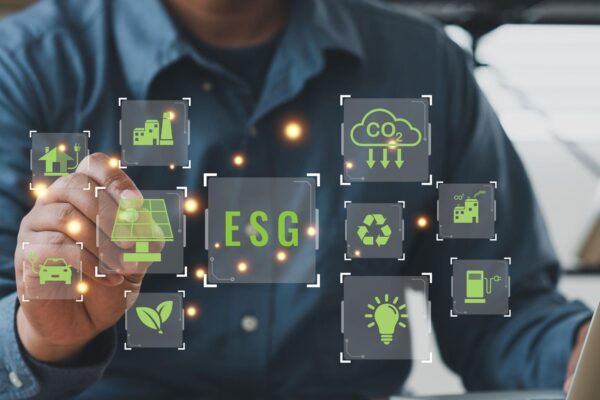Energy Consumption – Environmental issues have become a major topic of discussion in both developing and developed countries due to the widespread environmental degradation. This also raises questions about global warming and climate change, which are primarily caused by greenhouse gas emissions.
As our society becomes more dependent on electricity and businesses rely on the means of production, it is important to understand the implications of our energy consumption and find ways to reduce its negative impact on the natural environment.
Read More: Technology in Sustainable Business
Table of Contents
ToggleEnergy Consumption
Energy consumption refers to the amount of energy used by individuals, households, businesses, and industries for various activities. It encompasses all forms of energy used for heating, cooling, transportation, manufacturing, and electricity generation.
High levels of energy consumption, especially from non-renewable sources, lead to increased greenhouse gas emissions, contributing to climate change and air pollution. It is the reason why understanding and managing energy consumption is crucial for ensuring the efficient use of resources and maintaining a stable energy supply.
Energy Consumption Contribute to Carbon Emission
Energy consumption is a major contributor to carbon emissions, which significantly impact the environment and climate change. Fossil fuels, such as coal, oil and gas, are by far the largest contributor to global climate change, accounting for over 75 percent of global greenhouse gas emissions and nearly 90 percent of all carbon dioxide emissions.
The process when fossil fuels such as coal, oil, and natural gas are burned for energy, they release carbon dioxide (CO2) and other greenhouse gases (GHGs) into the atmosphere. These gases trap heat, leading to the greenhouse effect and global warming. The energy sector, such as electricity generation, transportation, and industrial processes, is the largest source of CO2 emissions worldwide.
Limited Energy Resources
The next condition that makes energy consumption require efficiency is because of the limited resources on earth. Non-renewable energy resources include coal, natural gas, oil, and nuclear energy, once they run out, they cannot be replaced. This will be a big problem for humanity because we currently depend on them to meet most of our energy needs.
Unfortunately, humans rely on non-renewable resources as its main source of energy. About 80 percent of the total amount of energy used globally each year comes from fossil fuels. The dependency on fossil fuels is because they are rich in energy and relatively cheap to process.
Read More: ESG Trends 2023: Sustainability Efforts in Driving Business
Renewable Energy Still Requires Effort

Renewable energy sources such as solar, wind, hydro and geothermal are essential to reducing our dependence on fossil fuels and mitigating climate change. However, the transition to renewable energy still requires efforts in terms of infrastructure, technology and costs.
Building and upgrading infrastructure to support renewable energy is complex. This includes building solar farms, wind turbines and hydroelectric power plants, as well as upgrading the grid to handle variable power sources.
On the technology side, ongoing research and development is needed to improve the efficiency and reduce the cost of renewable energy technologies. Innovations in materials, manufacturing processes and system design are essential to making renewable energy more competitive with traditional sources.
In this case, the initial investment costs can still be high. That is why transition to renewable energy requires financial planning and support from the public and private sectors.
Responsible Energy Consumption
With all these conditions, households and industries need to be more responsible for their energy consumption. Responsible energy consumption involves using energy resources efficiently and sustainably to minimize environmental impact, reduce costs, and promote long-term energy security. It encompasses a range of practices and strategies that individuals, businesses, and governments can adopt to ensure that energy is used in a way that meets present needs without compromising the ability of future generations to meet theirs.
to support more responsible energy consumption and reduce the impact on climate change and emissions, Satuplatform is now present as an all-in-one solution with various services that help companies achieve their ESG initiatives. Try FREE DEMO now!
Similar Article
Bagaimana Peran Perang dan Militer sebagai Kontributor Jejak Karbon Global
Konflik dan perang menciptakan kontributor jejak karbon baru dengan dampak signifikan dan sayangnya, sebagian besar tidak dihitung. Emisi ini jarang…
Why Product Lifespan Is the Next Frontier for Sustainable Business
Embracing product longevity and extending product lifespan emerges as a current and indispensable strategic priority for cultivating sustainable business growth…
Green Building sebagai Cara Mengurangi Jejak Karbon, Ini yang Perlu Dilakukan!
Di tengah isu perubahan iklim yang semakin mendesak, bisnis dan masyarakat global mulai sadar pentingnya pembangunan yang lebih ramah lingkungan.…
Unveiling the Environmental Impact of Children’s Toys Industry
The global toy industry plays a significant role in early childhood development, creativity, and education. Toys bring joy, imagination, and…
ESG as Sustainability Initiatives for Modern Industry
In today’s world, sustainability is no longer just a “nice-to-have”, but it’s a must. With rising concerns about climate change,…
ESG Strategies for Business Growth in Developing Countries
In today’s fast-changing world, businesses are no longer only measured by profits. Companies are now expected to be responsible for…







